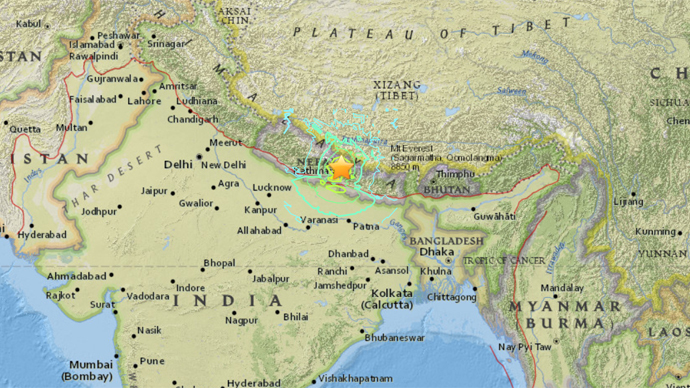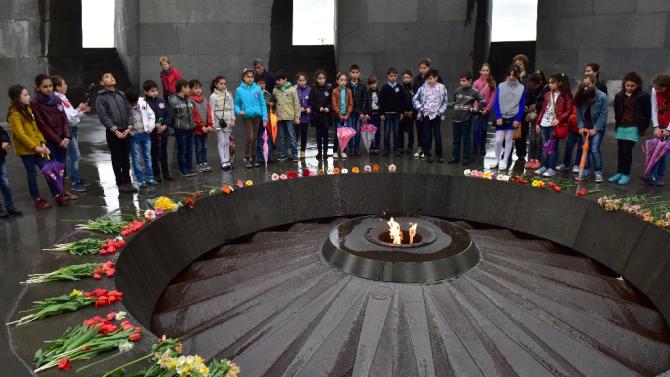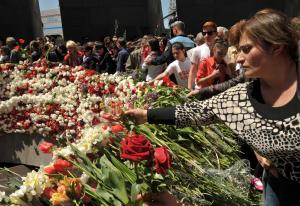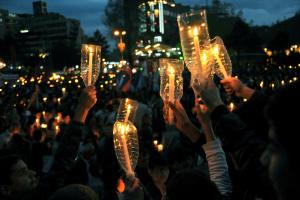Nepal earthquake: Rescue effort intensifies
- 54 minutes ago

Rescue efforts in Nepal are intensifying after nearly 2,000 people were killed on Saturday in the worst earthquake there in more than 80 years.
Many countries and charities have offered aid to deal with the disaster.
Seventeen people have been killed on Mount Everest by avalanches - the mountain's worst-ever disaster.
Meanwhile a powerful aftershock was felt on Sunday in Nepal, India and Bangladesh, and more avalanches were reported near Everest.
The 6.7 magnitude tremor, centred 60km (40 miles) east of Nepal's capital Kathmandu, sent people running in panic for open ground in the city.
Screams and the sound of an avalanche could be heard as an Indian mountaineer was interviewed by phone from near Everest by Reuters news agency.
The death toll from the original earthquake could rise, as the situation is unclear in remote areas which remain cut off or hard to access.
Many mountain roads are cracked or blocked by landslides.
Scores of bodies have been ferried to hospitals in Kathmandu, many of which are struggling to cope with the number of injured.
More than 700 have died in the capital alone.
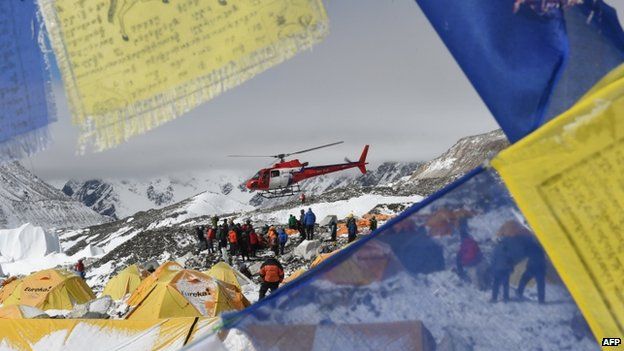
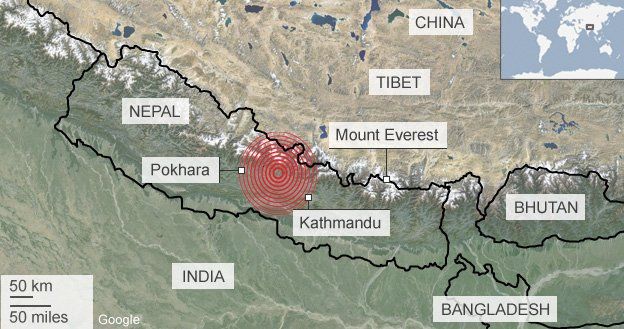
Medics are expecting a fresh influx of patients on Sunday as supplies run low.
Rescuers in places used their bare hands to dig for survivors still buried underneath piles of rubble and debris overnight on Saturday.
Army officer Santosh Nepal told the Reuters news agency that he and his soldiers had to dig a passage into a collapsed three-storey residential building in Kathmandu using pickaxes because bulldozers could not get through the ancient city's narrow streets.
"We believe there are still people trapped inside," he told Reuters.

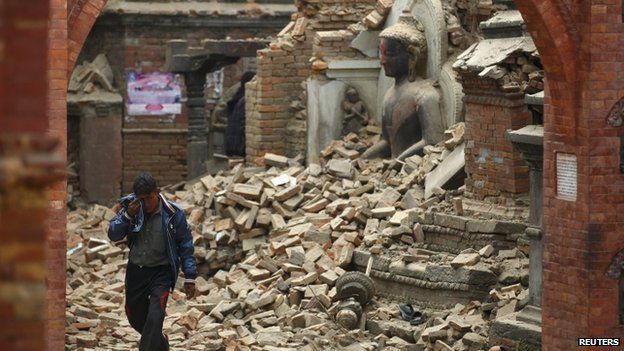

The 7.8 magnitude quake struck an area of central Nepal between Kathmandu and the city of Pokhara on Saturday morning.
There were also victims in India, Bangladesh and in the Chinese region of Tibet.
It is the worst earthquake to strike Nepal since one in 1934 which killed some 8,500 people.
'Moment of crisis'
"We have launched a massive rescue and rehabilitation action plan and lots needs to be done," Information and Broadcasting Minister Minendra Rijal told Indian television.
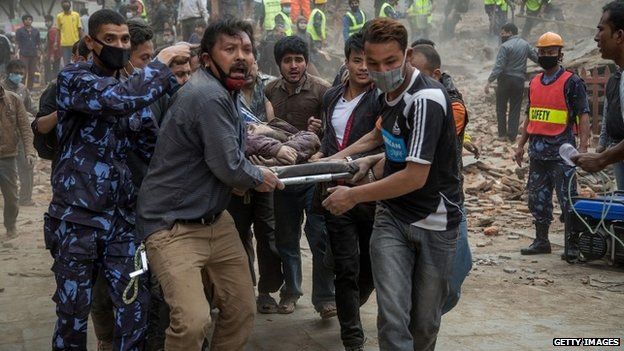
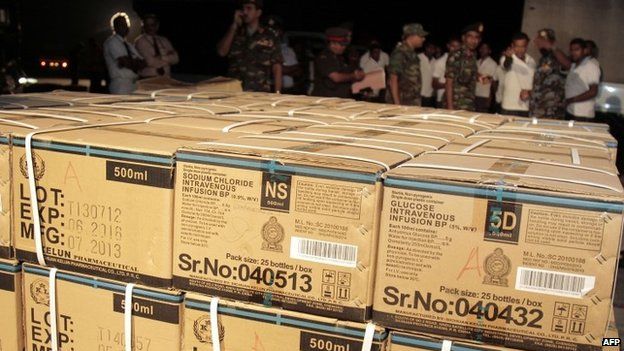
"Our country is in a moment of crisis and we will require tremendous support and aid."
Scores of people slept outside on Saturday night - braving wet and cold weather - either because their homes were destroyed or because they feared numerous aftershocks.
World leaders and global charities have offered emergency aid to Nepal, as the government grapples with the scale of the disaster.
India is at the forefront of the relief effort, offering help including helicopters which have been deployed to remote areas.
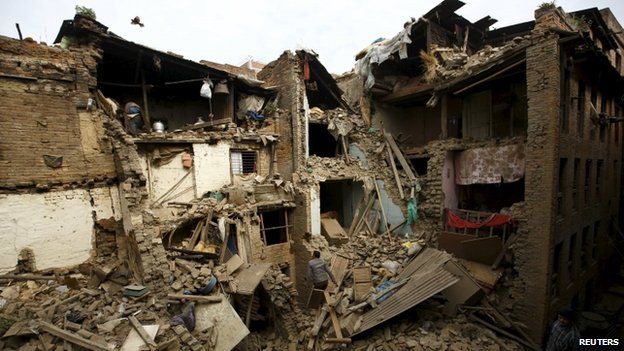
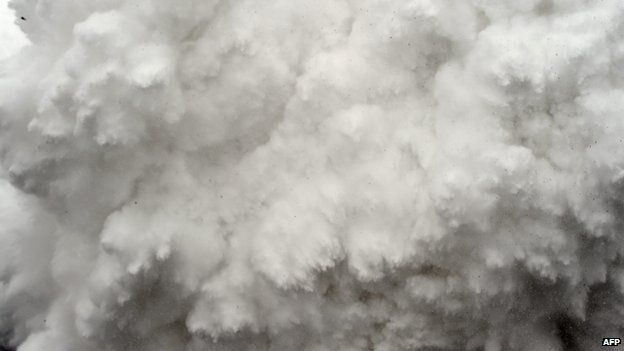
The United States, Britain, China, Pakistan and European Union countries are among those who have pledged aid. The US and China have both sent search-and-rescue teams.
"The absolute priority must be to reach people who are trapped and injured, and provide shelter and protection to those who have lost their homes," UK International Development Secretary Justine Greening said.
A number of international charities including Red Cross, Oxfam, Doctors Without Borders and Christian Aid are also sending teams to quake-hit areas.
"We do not yet know the scope of the damage, but this could be one of the deadliest and most devastating earthquakes since the 1934 tremor which devastated Nepal and [the Indian state of] Bihar," said International Federation of the Red Cross and Red Crescent Societies (IFRC) Asia-Pacific Director Jagan Chapagain.
The IFRC said it was especially worried about the fate of villages near the epicentre of the quake, some 80km (50 miles) from Kathmandu.
'Rubble and landslides'
The problems have been compounded by erratic internet and mobile phone communications.
British Red Cross spokeswoman Penny Sims said it was hard to get an accurate picture of what is going on.
"A lot of the roads are blocked, there's rubble, there's been landslides as well... So that is going to make the aid effort very difficult," she told the BBC.
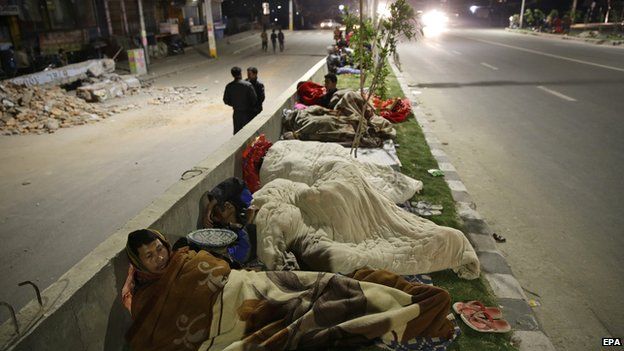
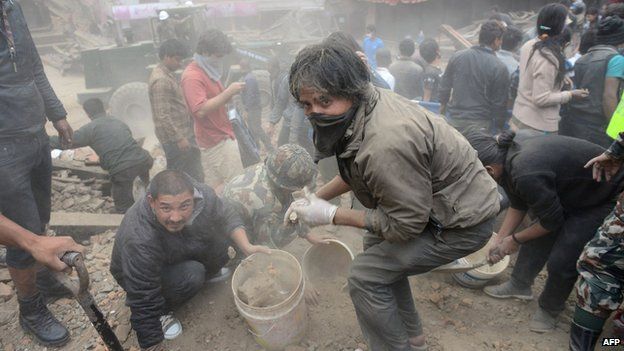
Foreign climbers and their Nepalese guides around Mount Everest were caught by the tremors and a huge avalanche.
As well as the 17 confirmed deaths, 61 people were injured when part of the base camp was buried under snow.
Helicopters trying to airlift the injured to Kathmandu were delayed by cloudy weather, but have now managed to land at the base camp.
Dan Fredinburg, a Google executive who described himself as an adventurer, was among the dead, Google confirmed.

